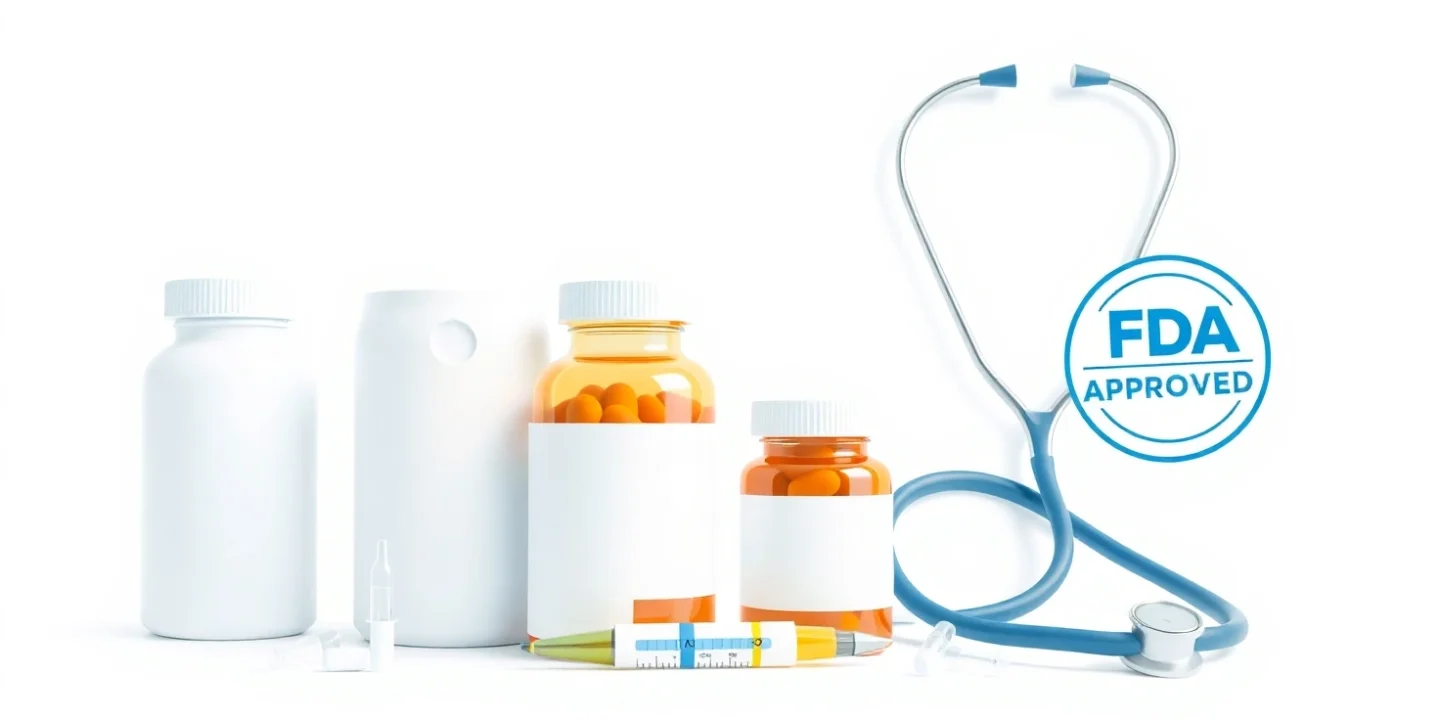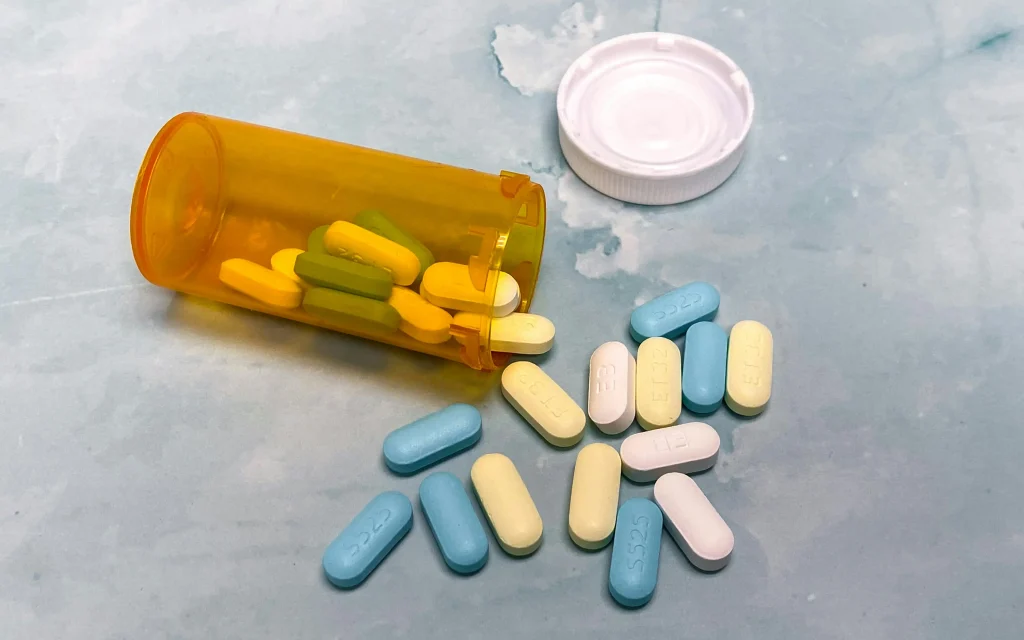
Obesity continues to be one of the leading health threats globally. Every year, millions of individuals try dieting, exercising, and changing eating patterns to reduce body weight. Yet, for many, those efforts aren’t enough. In such cases, weight loss drugs approved by the FDA offer medical support to help manage obesity.
These medications aren’t miracle solutions. But when paired with healthy habits, weight loss drugs approved by the FDA can lead to significant weight loss, especially for those with obesity-related conditions. This article explores what these drugs are, how they work, who should use them, and their potential risks and benefits.
Why Use Weight Loss Drugs Approved by the FDA?

Weight management isn’t only about appearance—it’s about improving overall health. Obesity raises the risk of chronic conditions like type 2 diabetes, heart disease, sleep apnea, hypertension, and certain cancers.
For people unable to lose enough weight through lifestyle changes alone, weight loss drugs approved by the FDA may be recommended by doctors. You may qualify if:
- Your BMI is 30 or higher (obese)
- Your BMI is 27 or higher, with health issues like high blood pressure or type 2 diabetes
While these medications aren’t stand-alone treatments, they can be very effective when combined with proper diet and exercise.
List of Weight Loss Drugs Approved by the FDA
Let’s take a look at the most commonly prescribed weight loss drugs approved by the FDA, how they work, who they help, and their side effects.
Orlistat (Alli, Xenical)
- How it works: Blocks fat absorption in the intestines
- Who it’s for: Adults seeking long-term weight loss support
- Dosage: 3 times daily with meals (prescription Xenical); OTC version is Alli
- Side effects: Oily stools, gas, frequent bowel movements if fat intake is high
- Note: A low-fat diet is critical while taking this FDA-approved weight loss drug
Phentermine-Topiramate (Qsymia)
- How it works: Suppresses appetite and alters brain chemicals that influence weight
- Who it’s for: Obese adults or those with weight-related health conditions
- Dosage: Once daily, slowly increased to reduce side effects
- Side effects: Insomnia, dry mouth, dizziness, increased heart rate
- Note: Not recommended during pregnancy
Bupropion-Naltrexone (Contrave)
- How it works: Regulates appetite and the brain’s reward system
- Who it’s for: Overweight or obese individuals with health risks
- Dosage: Gradually increased over several weeks
- Side effects: Nausea, insomnia, headache, constipation
- Note: Avoid if you have seizure disorders or eating disorders
Liraglutide (Saxenda)
- How it works: Mimics a hormone (GLP-1) that controls appetite and blood sugar
- Who it’s for: Adults and teens (12+) with obesity
- Dosage: Daily injections, dosage gradually increased
- Side effects: Vomiting, nausea, diarrhea, rare thyroid tumors
- Note: Also used in diabetes treatment as Victoza
Semaglutide (Wegovy)
- How it works: GLP-1 agonist that reduces hunger and increases satiety
- Who it’s for: Obese or overweight patients with medical complications
- Dosage: Weekly injection
- Side effects: Nausea, constipation, stomach pain
- Note: One of the most effective weight loss drugs approved by the FDA, with 15%+ weight loss reported
Tirzepatide (Zepbound)
- How it works: Activates both GLP-1 and GIP to curb appetite and improve blood sugar control
- Who it’s for: Adults with obesity or weight-related conditions
- Dosage: Weekly injection, increased gradually
- Side effects: Fatigue, low blood sugar, nausea, diarrhea
- Note: Clinical trials showed up to 22% body weight loss—making it a groundbreaking weight loss drug approved by the FDA
Effectiveness of FDA-Approved Weight Loss Drugs
Here’s how these FDA-approved weight loss drugs perform based on research:
| Drug | Average Weight Loss |
|---|---|
| Orlistat | 5–10% of body weight |
| Qsymia | 6–11% |
| Contrave | 5–9% |
| Saxenda | 8–10% |
| Wegovy | 15%+ |
| Zepbound | Up to 22% |
Remember, these results are based on patients who also followed a healthy diet and exercise plan.
Are These Weight Loss Drugs Safe?
Yes—weight loss drugs approved by the FDA are generally safe for qualified users. They’ve passed clinical trials and meet strict safety standards. Still, they come with side effects and should be taken under medical supervision.
You should avoid these drugs if:
- You’re pregnant or breastfeeding
- You have high blood pressure, heart conditions, or a history of stroke
- You’ve struggled with eating disorders or seizures
- You’re taking conflicting medications or use alcohol heavily
Why Lifestyle Still Matters
Weight loss drugs approved by the FDA are not meant to replace a healthy lifestyle. They support your efforts—but without permanent changes in habits, weight can return.
Focus on:
- A balanced, calorie-controlled diet
- At least 150 minutes of aerobic exercise weekly
- Adequate sleep and stress management
- Consistency and progress tracking
Weight lost through extreme dieting or medication alone isn’t sustainable unless lifestyle habits change.
Final Thoughts
If obesity is harming your health, weight loss drugs approved by the FDA can help. These medications are not magic pills, but they support your journey toward better health when used with the right mindset and medical guidance.
Sustainable weight loss takes time. Let these medications be a helping hand—not the entire plan. Talk to your doctor to see which option is right for you.
Frequently Asked Questions (FAQ)
1. What are the most effective weight loss drugs approved by the FDA?
Wegovy (semaglutide) and Zepbound (tirzepatide) are currently the most effective, with average weight loss up to 22% when combined with lifestyle changes.
2. Are these drugs safe?
Yes, weight loss drugs approved by the FDA undergo rigorous testing. However, always use them under medical supervision due topossible side effects.
3. Who should use them?
People with a BMI of 30+, or 27+ with weight-related health problems, may qualify.
4. Do I need a prescription?
Yes—except for Alli (OTC orlistat), all FDA-approved weight loss drugs require a doctor’s prescription.
5. How long do I need to take them?
It varies. Your doctor may evaluate your progress after 12 weeks and adjust the plan accordingly.
6. Do I still need to diet and exercise?
Absolutely. These drugs work best alongside lifestyle changes.
7. Will I regain weight if I stop?
Yes, weight regain is common if you don’t maintain healthy habits after stopping the medication.







